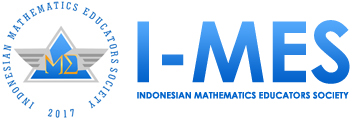Learning Design Using Discord and Jigsaw Strategies to Improve Listening Skills
DOI:
https://doi.org/10.35706/sjme.v8i2.10515Abstrak
Memperluas tantangan yang dihadapi sistem pendidikan di Indonesia dalam beradaptasi terhadap perubahan yang dibawa oleh perkembangan teknologi dan komunikasi. Kemunculan Industri 5.0 menghadirkan tantangan yang cukup besar sehingga memaksa institusi pendidikan untuk menerapkan proses pembelajaran jarak jauh. Istilah-istilah seperti blended learning, hybrid learning, flip-classroom, dan lain-lain telah menjadi cara untuk mengintegrasikan kegiatan belajar mengajar online dan offline. Integrasi ini menghadirkan tantangan baru dalam hal efektivitas, efisiensi, dan keterlibatan dalam merancang pembelajaran yang menggabungkan berbagai media dan strategi.
Menurut Prof Punaji (2020) dalam bukunya tentang desain pembelajaran, desain pembelajaran adalah suatu proses yang meliputi perencanaan kebutuhan dan tujuan pembelajaran, pengembangan media pengajaran, dan penerapan sistem pembelajaran yang sistematis, efektif dan efisien untuk mencapai tujuan pembelajaran yang telah ditentukan. Berbagai faktor seperti bahan dan kegiatan, karakteristik siswa, kurikulum, eksperimen, metode dan media pengajaran, serta evaluasi pembelajaran perlu dipertimbangkan dalam mengembangkan desain pembelajaran. Penggabungan desain pembelajaran dengan teknologi diharapkan dapat menjadikan pembelajaran lebih efektif dan efisien sehingga menghasilkan hasil yang optimal.
Unduhan
Referensi
Degeng, MDK., Setyosari, P., & Kuswandi, D. (2016). The Effect of Learning Control in Learning Using Web Media on Procedural Knowledge Learning Outcomes. Journal of Education and Learning, Vol. 23, No. 23.
Degeng & Degeng. (2018). Science Learning. Kalam Alive.
Efriani, E.; Dewantara, JA; Afandi, A. Utilization of the Discord Application as an Online Learning Media. J. Techno. _Inf. And Educator. 2020, 13, 61–65.
Ghazali, Nurzal E., 2021, Online Class Design Using Discord Based on the Community of Inquiry Framework. ASEAN Engineering Education Journal.
Harjanti, Intania Ayu, and Ayu Faradillah. “An Exploration of Secondary Student Perceptions _ of Blended Mathematics _ Learning .” SJME ( Supremum Journal of Mathematics Education) 4, no. 2 (2020): 197–204. https://doi.org/10.35706/sjme.v4i2.3650.
Hendra Saputra, Sangat, and Donaya Pasha. Scientifically Based Comics as Learning Media During the Covid -19 Pandemic." SJME ( Supremum Journal of Mathematics Education) 5, no. 1 (19 March 2021). https://doi.org/10.35706/sjme.v5i1.4514
Kuswandi, D., et al. Al. (2020). Educational Technology Competency in Teacher Training at Wahid Hasyim Middle School Malang, Indonesia. Atlantis Press, Vol. 508.
Odinokaya , MA; Krylova , EA; Rubtsova , AV; Almazova , NI Using the Discord Application to Facilitate EFL Vocabulary Acquisition. Educate. Science. 2021, 11, 470. https://doi.org/10.3390/educsci11090470
Praherdhiono , H., Setyosari , P., & Degeng , INS. (2019). Theory and Implementation of Educational Technology: The 21st Century Learning Era and Industrial Revolution 4.0. Thousand Stars.
Raihan Putra, J., & Putri Rahma, Y. (2018). DISCORD PUBG.INDO.FUN Group Communication Pattern via the DISCORD application. Director, 15(29), 7577–7588.
Ramadhan, A. Student Responses to the Use of the Discord Application as an Online Learning Media in Learning Speaking in High School. ISLLAC J. Intense. St. Lang. turn on. Art Kul. 2021, 5, 42–47
Rosyid, Abdul, and Uba Umbara. “Application of the Missouri Model Learning Mathematics Project with the Assistance of GeoGebra to Enhance the Mathematical Communication Skills of Middle School Students.” SJME ( Supremum Journal of Mathematics Education) 2, no.2 (2018): 84–89. https://doi.org/10.35706/sjme.v2i2.1326.
Setyosari, P., Learning Design. Earth of Literature. East Jakarta.
Smaldino, Sharon L., Lowther, Deborah L., and Russel, James D. (Rahman translation). (2011). Learning Technology & Learning Media: Learning Technology and Learning Media. Jakarta: Prenada Kencana Media Group.
Spector, J.M., Merrill, M.D., Elen, J., & Bishop, M.J. (2001). Handbook of Educational Communication and Technology Research. Routledge.
Vygotsky, L. S. (1978). Mind in society: The development of higher psychological processes. Per Harvard University.
Wulanjani, AN (2018). Discord App: Turning a Voice Chat App for Gamers Into a Virtual Listening Class. Proceedings of the International Conference on English Language and Literature ( ELLiC ), 115-119.
Creswell, J. W. (2009). Research design: Qualitative, quantitative, and mixed methods approaches (3rd ed.). California, CA: Sage Publications.
Joyce, B., Weil, M., & Calhoun, E. (2009). Teaching models (8th ed.). Boston, MA: Pearson.
Jansoon , N., Somsook , E., & Coll, R. K. (2008). Thai undergraduate chemistry practical learning experience using the Jigsaw IV method. Journal of Science and Mathematics Education in Southeast Asia, 31(2), 178-200.
Artut , PD, & Tarim, K. (2007). The Effectiveness of Jigsaw II on Prospective Elementary School Teachers. Asia-Pacific Journal of Teacher Education, 35(2), 129-141. https://doi.org/10.1080/13598660701268551.
Doymus , K. (2007). The influence of cooperative learning strategies on the teaching and learning stage of material and one-component phase diagrams. Journal of Chemical Education, 84(11), 1857-1860. https://doi.org/10.1021/ed084p1857.
Persky, A. M., & Pollack, G. M. (2009). A hybrid puzzle approach to teaching kidney cleansing concepts. American Journal of Pharmacy Education, 73(3), 1-6. https://doi.org/10.5688/aj730349.
Leikin, R., & Zaslavsky, O. (1999). Cooperative learning in mathematics. Mathematics Teacher, 92(3), 240-246. http://www.jstor. org/stable/27970923 .
Perkins, D. V., & Saris, R. N. (2001). The “jigsaw classroom” technique for undergraduate statistics courses. Teaching Psychology, 28(2), 111-113. https://doi.org/10.1207/S15328023TOP2802_09.
Li, W. (2012). A critical analysis of cooperative learning in the Chinese ELT context. Journal of Language Teaching and Research, 3(5), 961-966. https://doi.org/10.4304/jltr.3.5.961-966.
Anderson, R.D. (2002). Reforming science teaching: What research tells us about inquiry. Journal of Science Teacher Education, 13(1), 1-12. https://doi. org/10.1023/A:1015171124982.
Effendi-Hasibuan, M.H., Bakar, A., & Harizon , H. (2020). Argumentation skills: Using argumentation-based learning (AbL) and socio-scientific issues to improve students' argumentation skills in chemistry. Journal of Physics: Conference Series, 1567(2), 1-7. https://doi.org/10.1088/1742-6596/1567/2/022042.
Effendi-Hasibuan, MH, Harizon , H., Ngatijo , N., & Mukminin, A. (2019). Inquiry-Based Teaching ( IbTI ) in Indonesian Secondary Education: What Makes Science Teachers Successful in Curriculum Implementation? Turkish Journal of Science Education, 16(1), 18-33. https://doi.org/10.12973/tused.10263a.
Effendi-Hasibuan, MH, Ngatijo , N., & Sulistiyo, U. (2019). Inquiry-based learning in Indonesia: Describing chemistry teacher fundamentals, situational beliefs, and adoption. Turkish Journal of Science Education, 16(4), 538-553. https://doi. org/10.36681/tused.2020.6.
Effendi-Hsb, MH, Harizon , H., Ngatijo , N., Fuldiaratman , F., & Sulistyo, U. (2019). Encouraging Indonesian Middle School Students' Argumentation Skills on the Concept of Chemical Reaction Rates: Comparative Effects of Three Cooperative Learning Strategies. Journal of Physics: Conference Series, 1317(1), 1-13. https://doi.org/10.1088/1742-6596/1317/1/012143.
Effendi-Hsb, MH, Harizon , H., Ngatijo , N., Fuldiaratman , F., & Sulistyo, U. (2019). Encouraging Indonesian Middle School Students' Argumentation Skills on the Concept of Chemical Reaction Rates: Comparative Effects of Three Cooperative Learning Strategies. Journal of Physics: Conference Series, 1317(1), 1-13. https://doi.org/10.1088/1742-6596/1317/1/012143.
Fernandez-Rio, J., Sanz, N., Fernandez Cando, J., & Santos, L. (2017). The impact of sustainable cooperative learning interventions on student motivation. Pedagogy of Physical Education and Sports,
Stahl, R. (1994). Cooperative learning in social studies: A handbook for teachers. Menlo Park, CA: Addison-Wesley
Jansoon, N., Somsook, E., & Coll, R. K. (2008). Thai undergraduate chemistry practical learning experiences using the jigsaw
IV method. Journal of Science and Mathematics Education in Southeast Asia, 31(2), 178-200.
Creswell, J. W. (2009). Research design: Qualitative, quantitative, and mixed methods approaches (3rd ed). California, CA: Sage Publication.
##submission.downloads##
Diterbitkan
Cara Mengutip
Terbitan
Bagian
Lisensi

Artikel ini berlisensiCreative Commons Attribution-ShareAlike 4.0 International License.
Hak cipta dilindingi undang-undang berdasarkan Undang-undang Nomor 28 Tahun 2014 tentang Hak Cipta. Dilarang memperbanyak isi jurnal ini, baik sebagian maupun seluruhnya dalam bentuk apapun tanpa izin tertulis dari SJME (Supremum Journal of Mathematics Education) sebagai pemegang Hak Cipta terhadap seluruh isi dari jurnal tersebut.
Penulis yang menerbitkan jurnal ini setuju dengan persyaratan berikut:
- Penulis mempertahankan hak cipta dan memberikan hak jurnal tentang publikasi pertama dengan karya yang secara bersamaan dilisensikan di bawah Lisensi Atribusi Creative Commons yang memungkinkan orang lain membagikan karya tersebut dengan pengakuan dari karya penulis dan publikasi awal dalam jurnal ini.
- Penulis dapat memasukkan pengaturan kontrak tambahan yang terpisah untuk distribusi non-eksklusif dari versi terbitan jurnal tersebut (misalnya, kirimkan ke repositori institusional atau publikasikan dalam sebuah buku), dengan sebuah pengakuan atas publikasi awalnya di Jurnal ini.
- Penulis diizinkan dan didorong untuk memposting pekerjaan mereka secara online (misalnya di repositori institusional atau di situs web mereka) sebelum dan selama proses penyampaian, karena dapat menyebabkan pertukaran yang produktif, serta kutipan karya yang diterbitkan sebelumnya dan yang lebih lama.










